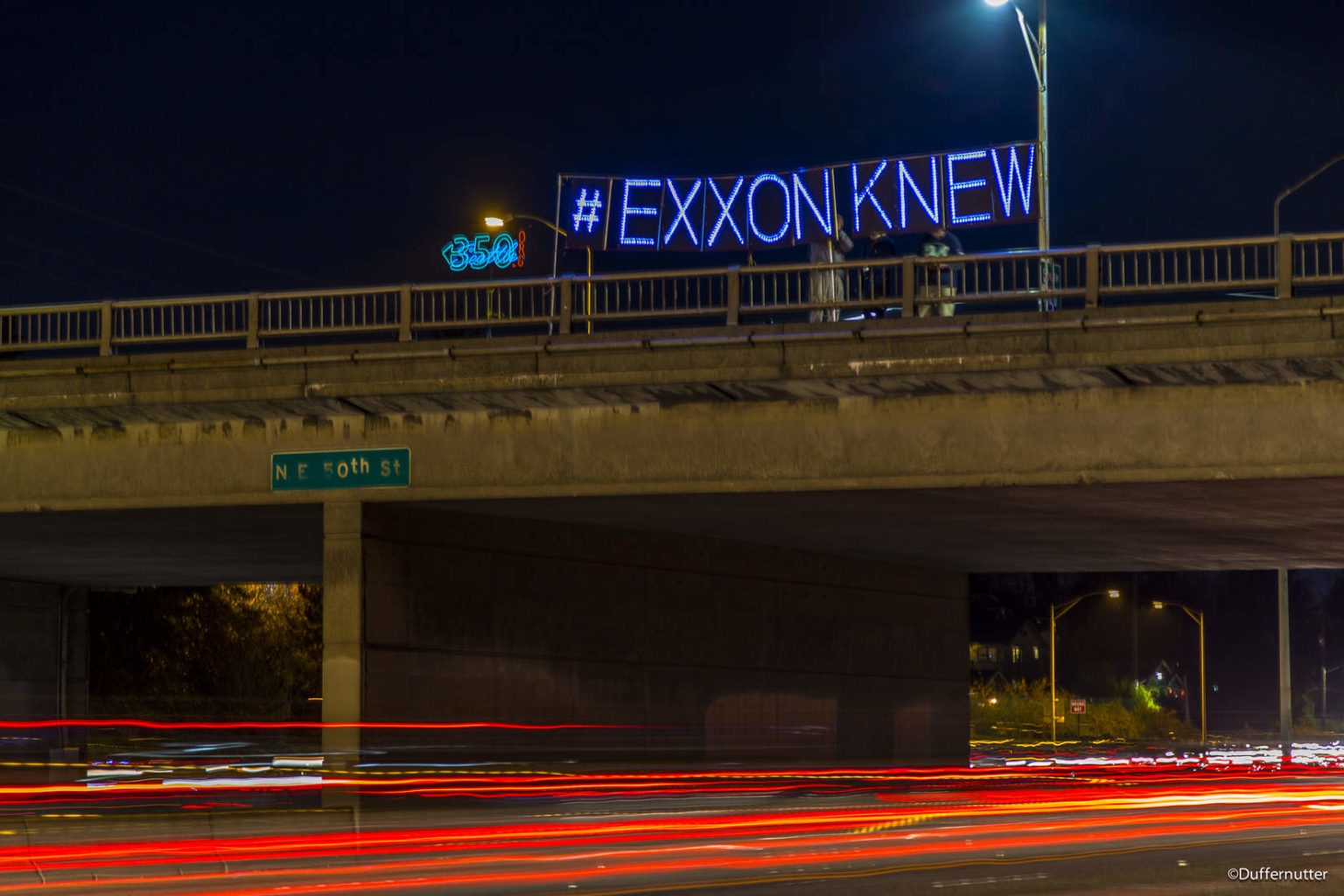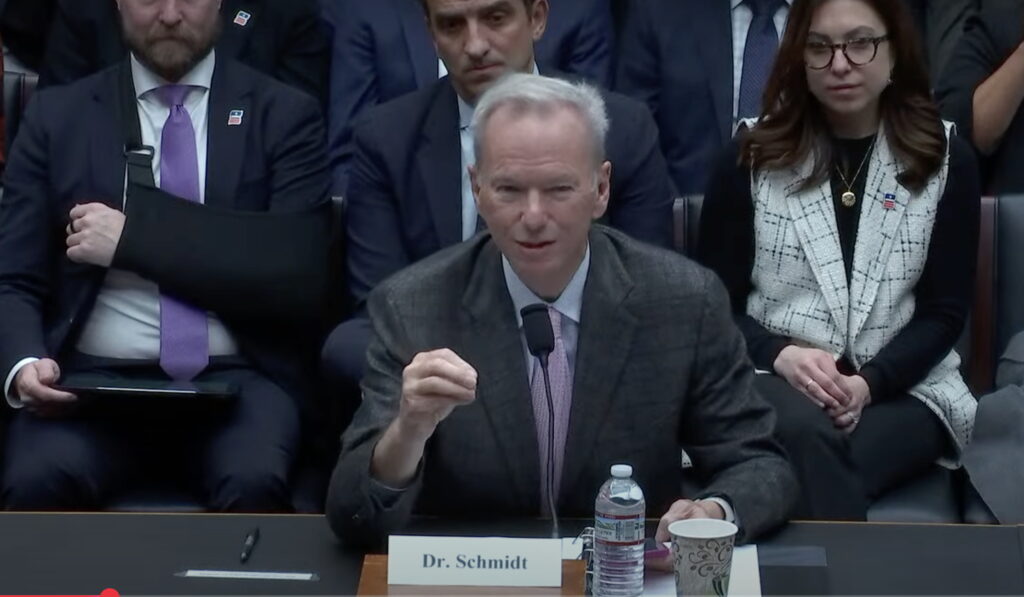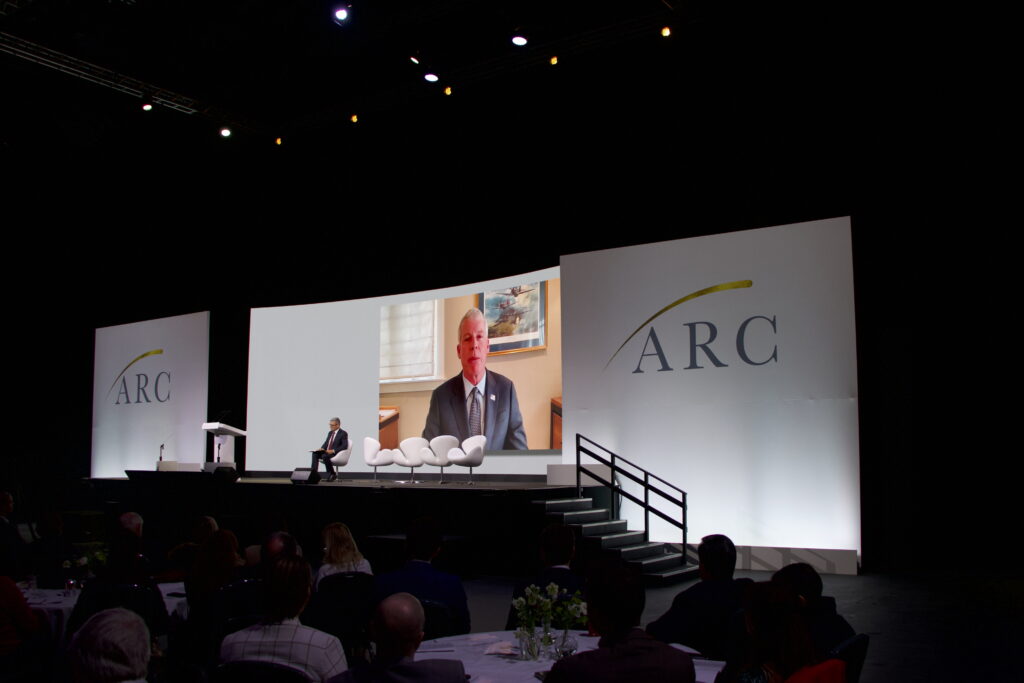With millions of students taking to the streets and oil majors increasingly facing litigation, the fossil fuel industry is finally being held to account for its contribution to the climate crisis.
This week, the EU is taking this accountability up a notch, with ExxonMobil’s decades-long denial of climate science facing the scrutiny of MEPs and the public at a hearing at the European Parliament in Brussels on Thursday.
During the two-hour session, scientists, campaigners and a historian will examine the history of climate denial and in particular the misinformation spread by Exxon, with MEPs able to ask questions about the role and behaviour of the oil major.
The hearing is being held jointly by the petitions committee and the environment, public health and food safety committee. It was arranged following a petition by Food & Water Europe, a Brussels-based non-governmental organisation, which gained 732 signatures.
“To my knowledge, this is the first major body of lawmakers, certainly at the national or international level, to hear on record expert testimony about the history of climate denial today,” says Geoffrey Supran, a postdoctoral fellow at Harvard who has examined Exxon’s history of obfuscation on climate change, and who will testify at Thursday’s hearing. “There’s a general momentum here, that investigative bodies are starting to formalise this enquiry.”
Representatives from the oil company itself won’t attend the hearing, due to “ongoing climate change related litigation in the US”, according to leaked notes from the coordinators of the hearing. Exxon did not respond to requests for comment at the time of publication.
Correction: Okay, this is the livestream link: https://t.co/bfd4HAGDjl
— Geoffrey Supran (@GeoffreySupran) March 20, 2019
Political Access
One issue MEPs will be asked to consider is the easy access to policymakers that Exxon enjoys, which contrasts sharply with that afforded to members of civil society.
In a five-minute speech that Frida Kieninger, campaigns officer at Food & Water Europe, will make at the hearing on Thursday, she plans to highlight the lengths to which young people have recently gone to gain the attention of lawmakers, compared to the access that Exxon has to the corridors of power.
“We have the young people marching on the streets, while at the same time Exxon is sitting within the European institutions; it’s basically on the table helping to draft climate and energy laws, and has a big influence and a lot of money to do so. It’s not proportionate to what civil society organisations have,” says Kieninger .
“At the same time they have lied for decades to us about the importance of climate change that they are actually causing with their activities.”
Chase O’Halloran, a Loyola college student, participated in a school strike for the climate in New Orleans, Louisiana, a state with deep ties to the oil and gas industry. Credit: Julie Dermansky for DeSmog
Exxon came under fire in 2015 when investigations by various publications, including DeSmog, InsideClimate News and the Los Angeles Times, revealed that the oil company had known about the causes and impacts of climate change since the 1970s. But instead of acting to reduce emissions, financed efforts to sow seeds of doubt about the science, and lobbied to block federal and international efforts to tackle the problem.
“The overwhelming consensus of experts studying the history of fossil fuel interests is essentially that the fossil fuel industry has known about the basic dangers of global warming caused by their products for 60 years, yet instead of taking action and warning the public, it orchestrated and funded decades of denial,” says Supran.
“A key actor in that history is ExxonMobil. But I also plan to give the committees a broader perspective, to point out that I’m only showing them the tip of the iceberg. We have now thousands of pages of documented evidence and it all points one way, and that’s that Big Oil is the new Big Tobacco. [I’m helping] them understand that I’m just talking about one cog in this web of denial machine.”
EU Lobbying
As well as examining Exxon’s history of climate science denial, Thursday’s hearing will also focus on the extent of Exxon’s lobbying within the EU itself, and on its efforts to delay climate action.
“In the US, I think the political climate is far friendlier towards climate denialism, and in the EU I think it has not been possible,” says Pascoe Sabido, a researcher at Corporate Europe Observatory.
“Publicly in Europe, it’s been a lot harder for Exxon and others to really downplay the reality of climate change, so instead they’re spending millions and millions on lobbying to delay climate action and distract us with false solutions. This hearing is a chance to explore Exxon’s climate denialism, which is well documented, but we’re also hoping to hold them to account for scuppering much needed climate action.”
DeSmog UK has previously revealed how Exxon funneled millions of Euros to corporations, lobby groups, and academic institutions in the EU.
According to a new report by Corporate Europe Observatory, citing the EU Transparency Register, ExxonMobil spent up to €3.5 million on lobbying in 2018. The company declares 12 lobbyists, six of whom have badges that give them direct access to the European Parliament.
Campaigners hope that MEPs will punish Exxon for spreading climate disinformation by revoking its lobbyist access badges to the European Parliament, similar to its decision to revoke access to lobbyists from Monsanto, the US seed company, in 2017, following its refusal to participate in a hearing in Parliament on the ‘Monsanto Papers’.
The decision to revoke Exxon’s lobby badges would not be taken by the hearing, but rather by the leaders of the parliamentary groupings. Even so, given that the oil company has various means by which to access decisionmakers, any action taken to ban the group from parliament itself would be partially symbolic, says Kieninger.
“It’s really affecting only the European Parliament. We know it’s a very strong symbolic move, but we are aware of the fact that Exxon have other institutions that they can access, and we also want to make aware of the fact that they have many other channels to influence decision makers, even within the European Parliament, even without the lobby badges,” says Kieninger.
“It’s a strong way of parliamentarians to show publicly what they think about Exxon lobbyists, and we can much more easily put pressure on those who are still engaging with Exxon or still showing up to events that Exxon are organising and so on.”
The European Commission has already proved reluctant to censure Exxon for its climate science denial, or to limit its lobbying power. Following the submission of the petition, asking for action against Exxon, the Commission refused to hold a hearing.
“Misinformation about climate change, while deplorable, is not in itself a breach of EU law,” the Commission responded in May 2017. “The best response to climate scepticism is to pursue the current actions and ensure the reduction of global greenhouse gas emissions.”
In a subsequent 2018 hearing, the Commission refused to hold a hearing on the grounds that everyone, including climate science deniers, have the right to freedom of speech.
While the potency of the hearing may be weakened by the absence of Exxon itself, the company’s refusal to cooperate could be what ends up making an impression on the MEPs in attendance, says Kieninger.
“I think it’s losing some of its strength by Exxon not being there. On the other hand, it gives a chance for MEPs to really consider if they want to keep cooperating with Exxon who’s obviously not cooperating with them once they invite them,” she says.
Sabido agrees that Exxon should have its lobbying privileges stripped for its refusal to show up before the committees, suggesting that their absence means the company doesn’t believe the Parliament will hold them to account.
“Exxon not showing up shows the disregard they have for democracy, and for European institutions. What’s happening in Brussels is not a court case – it’s a political hearing,” says Sabido, adding that their excuse of the ongoing litigation in the US doesn’t hold much water as a result.
“If Exxon is not going to show up to be held to account, then they shouldn’t be able to show up to lobby the Parliament.”
Main image: #ExxonKnew protest. Credit: John Duffy, CC BY 2.0
Subscribe to our newsletter
Stay up to date with DeSmog news and alerts








